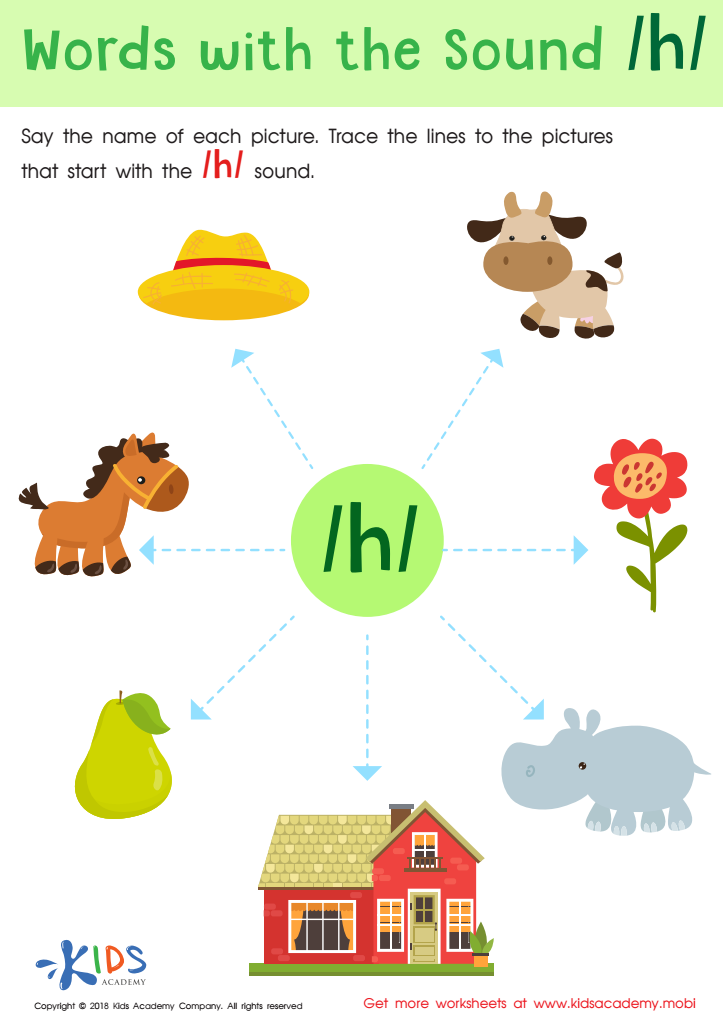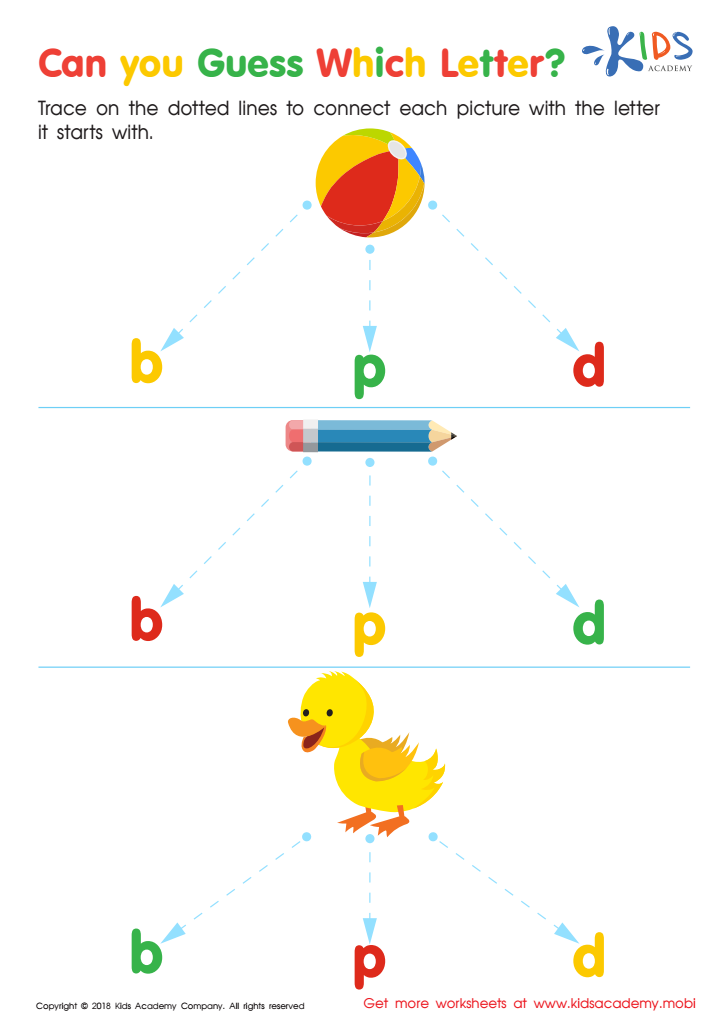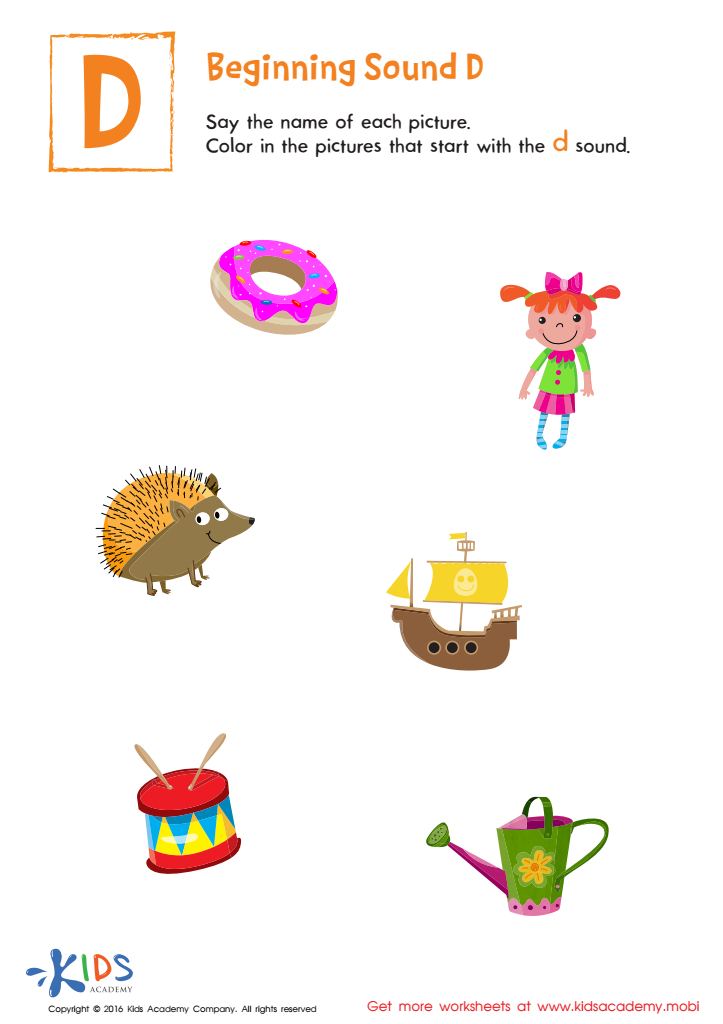Vocabulary expansion Normal Beginning Sounds Worksheets for Ages 3-5
4 filtered results
-
From - To
Unlock your child's linguistic potential with our Vocabulary Expansion Normal Beginning Sounds Worksheets, crafted specifically for ages 3-5. These engaging and interactive worksheets are designed to make learning fun while developing essential early reading skills. By focusing on beginning sounds, children gradually build a solid foundation for reading success. Our worksheets use colorful illustrations and simple exercises to captivate young minds, helping them recognize, articulate, and associate initial sounds with corresponding images. Encourage your child's language growth with these invaluable, expertly designed resources, and set the stage for a future love of reading and learning.


Words with sound h Reading Worksheet


Can you Guess Which Letter? Worksheet


Words with sound f Reading Worksheet


Beginning Sound D Worksheet
Vocabulary expansion and mastery of beginning sounds are crucial for children ages 3-5 as they lay the groundwork for future literacy and language development. At this early stage, children's brains are particularly receptive to new words and phonetic patterns, making it an ideal time to boost their vocabulary and phonemic awareness.
A rich vocabulary is directly linked to reading comprehension and academic success. When children know a wide range of words, they can understand and express more complex ideas, thereby improving their communication skills. Early exposure helps them to form mental maps of word meanings and relationships, facilitating more effective learning as they grow.
Similarly, grasping beginning sounds (phonemic awareness) is a foundational skill that underpins reading and writing. Phonemic awareness allows children to recognize and manipulate sounds in words, which is critical for decoding new words when reading and for spelling when writing. If children fail to develop these skills early, they may struggle with reading later on, which can impact their overall academic achievement and self-esteem.
Therefore, parents and teachers should prioritize activities and interactions that support vocabulary growth and phonemic awareness. Reading stories aloud, playing sound-based games, and engaging in conversations are effective strategies. Establishing a strong linguistic foundation at this age ensures children are well-equipped for future literacy challenges.
 Assign to My Students
Assign to My Students















